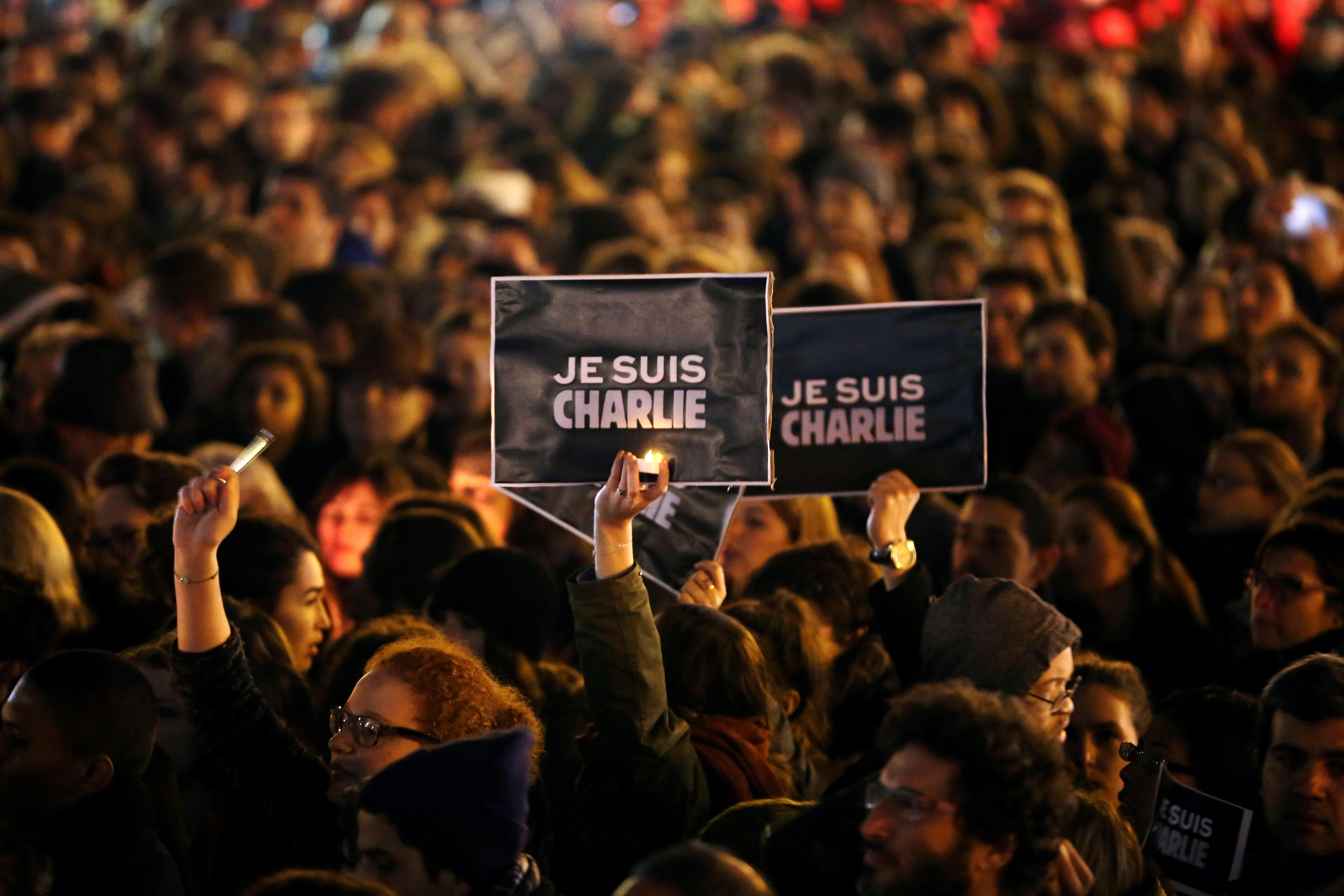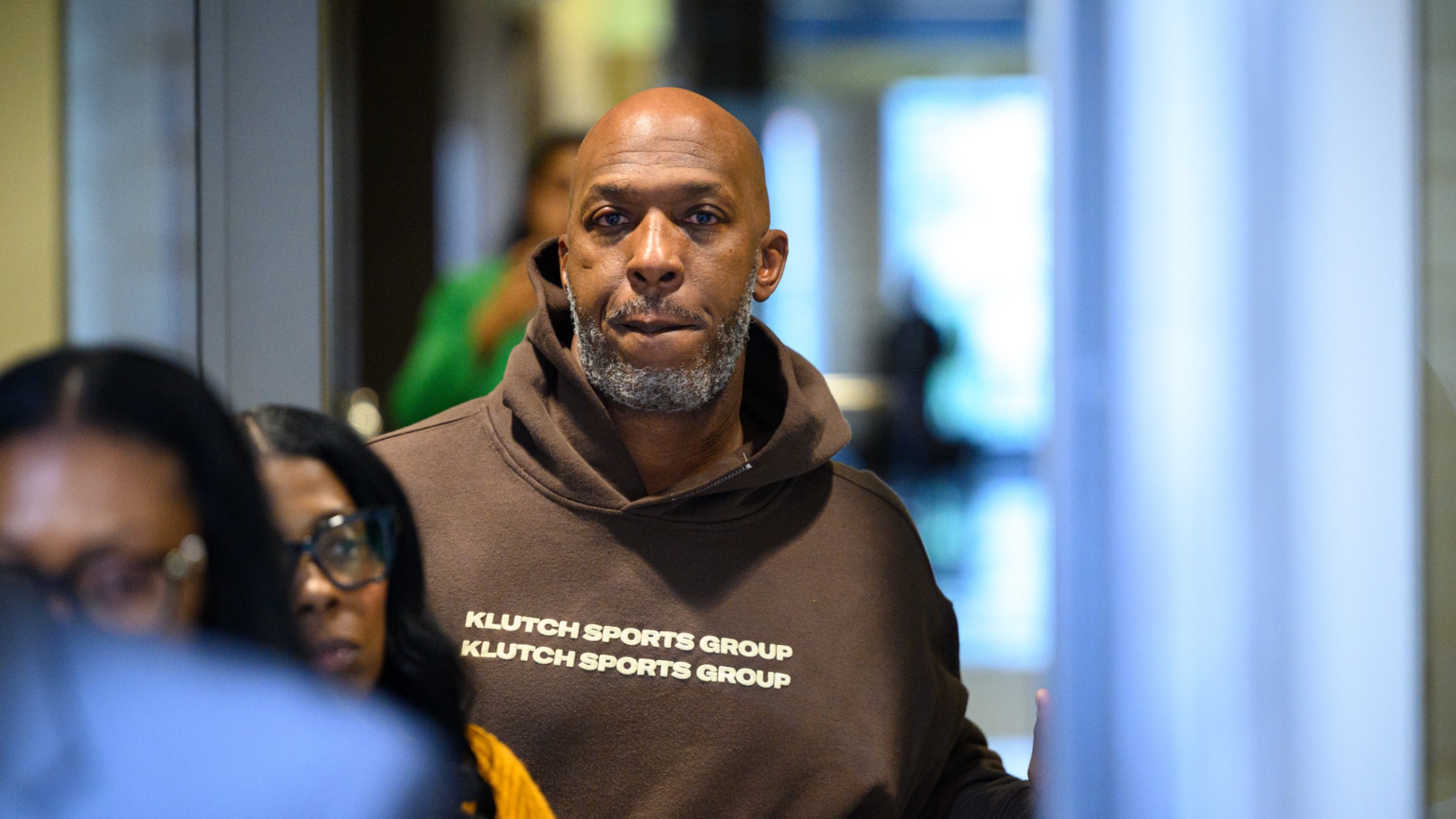The flawed libertarian response to the Charlie Hebdo attacks
Critics of American foreign policy don't do themselves any favors when they seem to shift blame away from the terrorists and toward the victims


Libertarians can't seem to agree on what to make of the horrible terrorist attacks in France.
Ron Paul, the man most responsible for America's libertarian moment, says the deadly attacks against Charlie Hebdo's Paris office were "blowback" against an interventionist French and American foreign policy. Matt Welch, editor-in-chief of the most influential libertarian magazine Reason, says the newsroom slaughter was an obvious free speech issue.
Now, libertarian infighting is nothing new. Google "privatize lighthouses" if you don't believe me. But this new debate is particularly important because libertarian-leaning conservatives have a growing influence over the Republican Party — so what they believe may have dramatic consequences for our politics and policies, particularly in the realms of foreign policy, national security, and the surveillance state.
The Week
Escape your echo chamber. Get the facts behind the news, plus analysis from multiple perspectives.

Sign up for The Week's Free Newsletters
From our morning news briefing to a weekly Good News Newsletter, get the best of The Week delivered directly to your inbox.
From our morning news briefing to a weekly Good News Newsletter, get the best of The Week delivered directly to your inbox.
Ron Paul's descendants, literally in the case of Kentucky Sen. Rand Paul and figuratively in the case of Michigan Rep. Justin Amash, are the main force trying to push the Republican Party away from the force-friendly foreign policy of the Bush-Cheney years. After more than a decade of multiple wars, America is finally war-weary enough that even some Republicans are listening. In 2011, 87 House Republicans voted with liberal darling Dennis Kucinich to stop President Obama's military action in Libya. Two years later, Tea Party conservatives played a role stopping a proposed bombing campaign in Syria.
The resurgence of jihadist terrorism has halted that progress. But libertarians have still come a long way.
Remember that 2007 Republican presidential debate, when Ron Paul cited U.S. sanctions, bombings, and efforts to destabilize Middle Eastern regimes as motivating factors in the 9/11 terrorist attacks on the United States? Rudy Giuliani would have none of it.
"That's an extraordinary statement, as somebody who lived through the attack of September 11, that we invited the attack because we were attacking Iraq," Giuliani fumed. "I don't think I've ever heard that before, and I've heard some pretty absurd explanations for September 11."
A free daily email with the biggest news stories of the day – and the best features from TheWeek.com
Giuliani then challenged Paul: "I would ask the congressman to withdraw that comment and tell us he didn't really mean that." The Fox News moderator piled on, asking, "Are you suggesting we invited the 9/11 attacks, sir?"
For many conservative Republicans, that's what the blowback argument implies: that terrorist attacks are deserved, they we had them coming, that America's chickens have come home to roost.
But conservative Republicans make arguments about the unintended consequences of government actions all the time: fiscal stimuluses that actually hurt the economy, anti-poverty programs that leave the poor worse off, tax increases that put a dent in revenue collection by reducing taxable income. Do my fellow conservatives think the American people deserve these consequences, or are they merely pointing out that some government policies don't work as promised?
Yet sometimes libertarian and conservative critics of American foreign policy do sound as if they are shifting blame away from the terrorists — who are ultimately responsible for their contemptible actions — and toward the victims. The nicest thing that can be said about this is that it is not a very good way to change people's minds about foreign policy.
It's also possible to exaggerate the effects of blowback. Charlie Hebdo wasn't the most hawkish magazine in the Western world. It did, however, publish pictures of Muhammad. That's what the attackers said motivated their decision to murder the cartoonists. Apologists for these crimes argue publicly that there should be consequences to exercising free speech in this manner.
Denying or minimizing these facts doesn't do much for the credibility of libertarian foreign-policy arguments. And it ultimately doesn't sound very libertarian.
It's not as if the reality in France is kind to interventionists. If people born in France can engage in such attacks, if it's so difficult for a country of 66 million to assimilate five million Muslims, what are the prospects for Western nation-building within the Muslim world?
Without nation-building, wars for regime change have only ended up creating vacuums filled by terrorists. See Iraq and Libya.
When your country is under foreign attack, you are going to rally to your countrymen if you are a person of normal patriotic instincts.
That's basic reality of human nature that escapes many interventionists — and many people making arguments against intervention too.
W. James Antle III is the politics editor of the Washington Examiner, the former editor of The American Conservative, and author of Devouring Freedom: Can Big Government Ever Be Stopped?.
-
 7 mountain hotels perfect for a tranquil autumn or winter escape
7 mountain hotels perfect for a tranquil autumn or winter escapeThe Week Recommends Get (altitude) high and unwind
-
 ‘Deskilling’: a dangerous side effect of AI use
‘Deskilling’: a dangerous side effect of AI useThe explainer Workers are increasingly reliant on the new technology
-
 The biggest sports betting scandals in history
The biggest sports betting scandals in historyIn Depth The recent indictments of professional athletes were the latest in a long line of scandals
-
 Millions turn out for anti-Trump ‘No Kings’ rallies
Millions turn out for anti-Trump ‘No Kings’ ralliesSpeed Read An estimated 7 million people participated, 2 million more than at the first ‘No Kings’ protest in June
-
 Ghislaine Maxwell: angling for a Trump pardon
Ghislaine Maxwell: angling for a Trump pardonTalking Point Convicted sex trafficker's testimony could shed new light on president's links to Jeffrey Epstein
-
 The last words and final moments of 40 presidents
The last words and final moments of 40 presidentsThe Explainer Some are eloquent quotes worthy of the holders of the highest office in the nation, and others... aren't
-
 The JFK files: the truth at last?
The JFK files: the truth at last?In The Spotlight More than 64,000 previously classified documents relating the 1963 assassination of John F. Kennedy have been released by the Trump administration
-
 'Seriously, not literally': how should the world take Donald Trump?
'Seriously, not literally': how should the world take Donald Trump?Today's big question White House rhetoric and reality look likely to become increasingly blurred
-
 Will Trump's 'madman' strategy pay off?
Will Trump's 'madman' strategy pay off?Today's Big Question Incoming US president likes to seem unpredictable but, this time round, world leaders could be wise to his playbook
-
 Democrats vs. Republicans: who are US billionaires backing?
Democrats vs. Republicans: who are US billionaires backing?The Explainer Younger tech titans join 'boys' club throwing money and support' behind President Trump, while older plutocrats quietly rebuke new administration
-
 US election: where things stand with one week to go
US election: where things stand with one week to goThe Explainer Harris' lead in the polls has been narrowing in Trump's favour, but her campaign remains 'cautiously optimistic'
